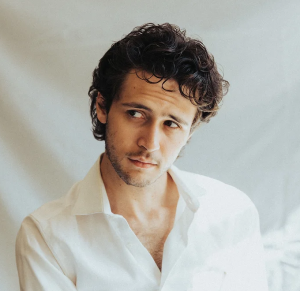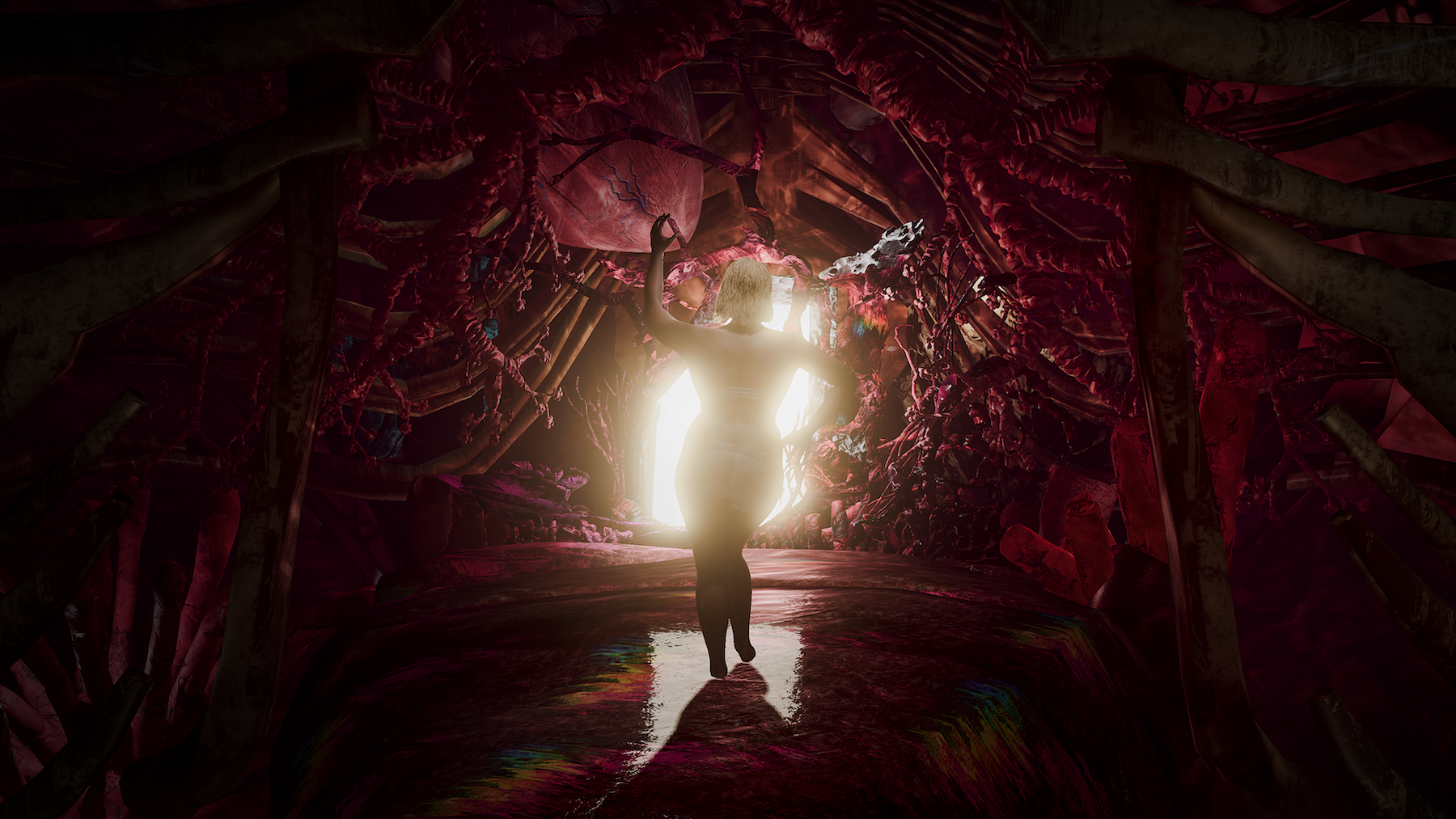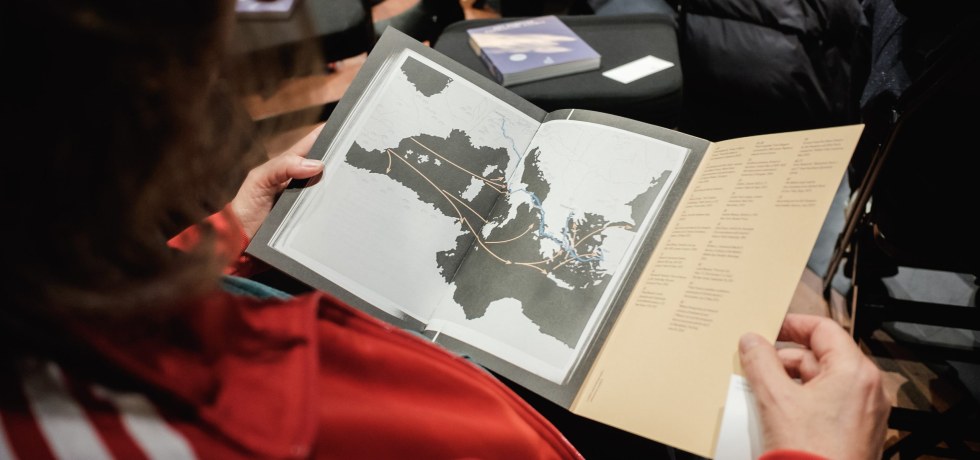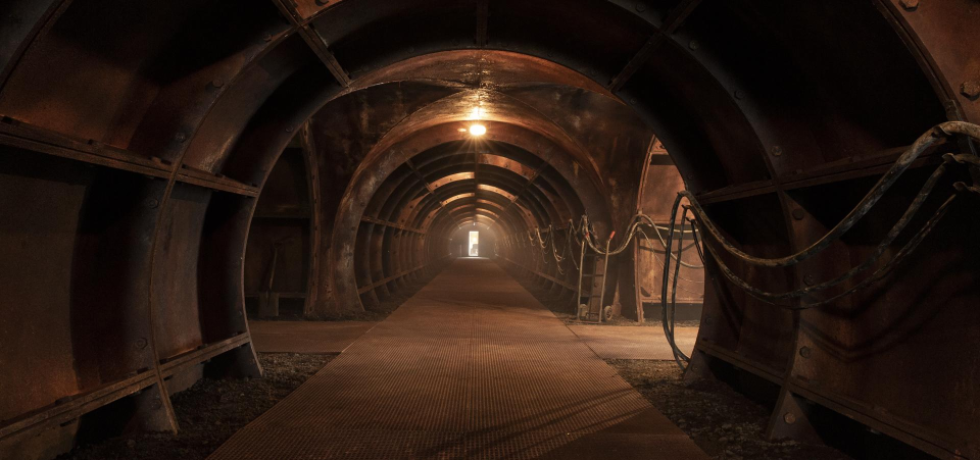Body of Mine
Body of Mine is a full-body immersive experience that allows you to inhabit the body of another gender and interact with your skin to listen to interviews with transgender people. The experience combines body, face, and eye tracking that enables you to interact with dozens of interviews with trans people so that you can discover, hear, and experience first-hand their stories.
INTERVIEW WITH THE CREATOR
This interview was conducted by Eileen Lu, a Columbia DSL student at Columbia University School of the Arts.
Q: Could you tell us how Body of Mine came to be? What got you started on it? What was your ambition to accomplish with it?
A: Body of Mine started after I had been outed as gay to my family and had to navigate the subsequent estrangement. I was pondering how immersive formats could be used to build safe spaces for queer individuals at a time when it felt like a safe space in the real world was hard to find. I wanted to create a space that, on the one hand, gave queer audiences a safe space to exist, to connect, and to explore their own identity, and on the other hand, that could be used to invite cisgender and non-queer people to connect to the stories of the queer community and try to understand on a deeper level the experiences that we go through.
Q: How did you decide to use VR — which you had no experience with?
A: This was my first VR experience. Before this, I had been doing physical production. I got my BFA in Film and Television Production from USC Cinematic Arts. However, I knew that a project that dealt with something as intimate as our bodies and gender dysphoria required more than just a traditional 2D screen. It was really a project that required you to be embodied and to involve a sense of self, a sense of presence, and a sense of agency, and so a full-body-tracked VR experience was the best medium.
Q: It’s a very ambitious project. How did you get it done? Did you have support from friends?
A: I created Body of Mine by teaching myself how to use Unreal Engine, using ChatGPT to write my code, watching YouTube tutorials, and, of course, by relying on the help of friends. My best friend, Evan, would spend all-nighters with me working on it, and other friends would help out by traveling with me to festivals, helping teach me the fundamentals of game design, or by giving me emotional support.
Q: We gather you had a very negative experience when you told your parents you were queer. Were you expecting that? How did you work up the courage to tell them?
A: I was forced out of the closet. I did not have the opportunity to tell my family that I was queer. Instead, they found out through someone I no longer speak with. I grew up Baptist, and I knew that their reaction would be bad, so I was postponing coming out for as long as I could until it eventually caught up to me. So I was not surprised at their reaction.
Q: Was there a direct connection between that experience and this project?
A: That outing is the reason Body of Mine exists. At a time when a safe space in the real world is hard to find, I wanted to build a safe space in the hope that someone in my shoes could use it for themselves, and for their family.
Q: Do you have other family members who’ve been more supportive?
A: I have two amazing brothers, one of whom is also gay, and an incredible aunt who is always supporting me through everything.
Q: Has anybody in your family experienced Body of Mine?
A: Only my brother and my aunt have experienced it so far. The logistics of it have been too complicated to travel with outside of festivals. However, now we have a brand new, unreleased standalone version for the Quest 3, which means that I can actually bring it to the rest of my family. I don’t speak with either of my parents anymore, but I can show the rest of them.
Q: You premiered this at SxSW. What was the reaction there?
A: The reaction at SxSW was overwhelming. Our experience was sold out minutes after opening. There were so many tears and so much praise that, for a first-time festival [experience], it was everything I had dreamed of. It was amazing to bring the experience to premiere in Texas, a state that is passing a lot of anti-trans legislation, and a place that was my home, as I was born in Dallas. We had a lot of technical issues at SxSW and almost were not able to premiere it. However, we pushed through and won the Special Jury Prize, and that made it all worth it.
Q: How has this affected your own perception of who you are?
A: The reception to Body of Mine has given me a sense of responsibility, knowing that, as I continue to create projects, I must always strive to do so authentically, respectfully, and gently.
ABOUT THE FILMMAKER
 Cameron Kostopoulos is an award-winning immersive storyteller and the founder and CEO of Kost, a Los Angeles-based immersive studio dedicated to transforming the way we engage with media. He graduated summa cum laude from the University of Southern California’s School of Cinematic Arts with a BFA in Film & Television Production and Future Cinema. He earned an MA from Arizona State University’s Herberger Institute for Design and the Arts in the Narrative & Emerging Media program under Nonny de la Peña, where he was named the school’s most outstanding graduate. After a traumatic outing, he began building safe spaces for queer communities. His 2023 XR experience Body of Mine won the Special Jury Award at SxSW, a BAFTA Student Award, and Best XR at Games for Change, among others.
Cameron Kostopoulos is an award-winning immersive storyteller and the founder and CEO of Kost, a Los Angeles-based immersive studio dedicated to transforming the way we engage with media. He graduated summa cum laude from the University of Southern California’s School of Cinematic Arts with a BFA in Film & Television Production and Future Cinema. He earned an MA from Arizona State University’s Herberger Institute for Design and the Arts in the Narrative & Emerging Media program under Nonny de la Peña, where he was named the school’s most outstanding graduate. After a traumatic outing, he began building safe spaces for queer communities. His 2023 XR experience Body of Mine won the Special Jury Award at SxSW, a BAFTA Student Award, and Best XR at Games for Change, among others.
IN THE MEDIA
“The sensation of seeing yourself as another gender in VR is both surreal and thought-provoking. You’re inside a cisgender male, who is experiencing the world as a woman. Looking down at myself, I saw breasts, tattoos, and long flowing hair where there is none. The character blinked with me, moved with me, and responded to movements as subtle as a shift in weight.
“During the experience you are invited to interact with different parts of your new, digital body, and activate stories from a trans individual. Touching my stomach played the story of a pregnant man, while touching my chest played the story of a woman’s top surgery. It is more than just walking in someone’s shoes. You inhabit them.
“As the story progresses you inhabit not just one body, but body after body. One second I was plus-sized, the next I was skinny; one second Black, another second with surgery scars. I was inhabiting bodies of all genders, sizes, colors, and identities, all while the ribcage around me transformed into a beautiful garden—the heart morphs into a strawberry while the lungs blossom into trees. The climactic moment, where my body glowed triumphantly as an ephemeral spirit, argues that what makes us human transcends the labels we create for ourselves.”
—Forbes


